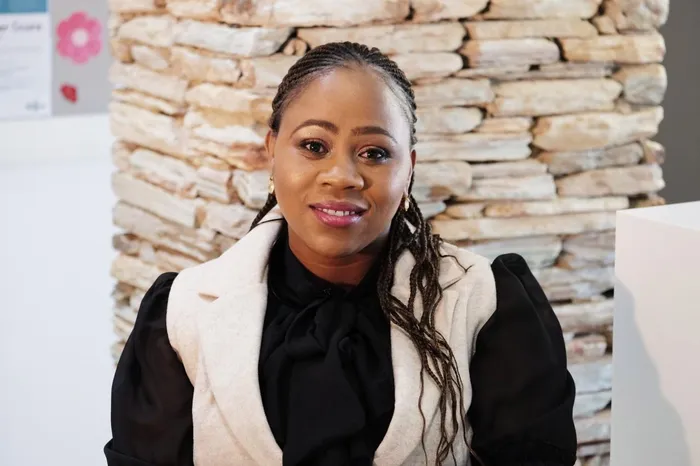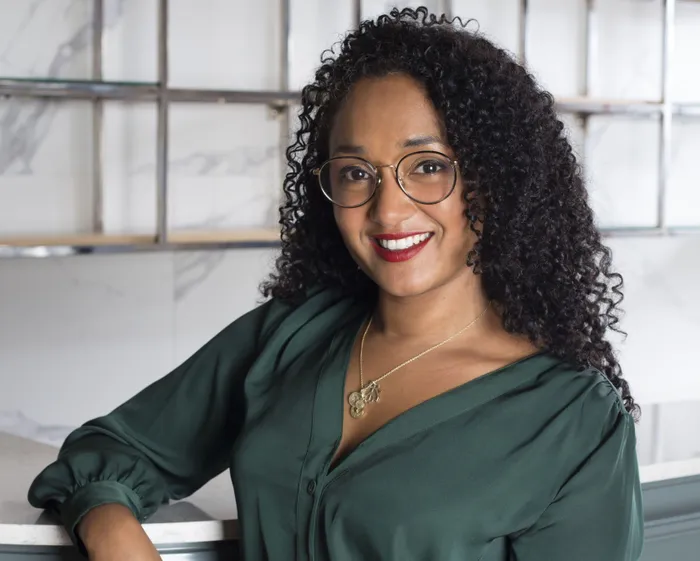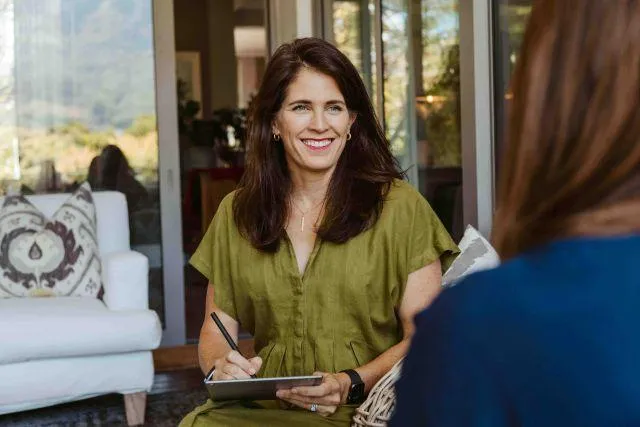
Initiatives such as Mzansi Women's Expo are instrumental in furthering the cause of gender equity in South Africa.
Image: Supplied
Despite all the advances that society has made towards gender equality, the cold, hard facts show that women in South Africa are still significantly “less equal” than men.
According to a recent report compiled by Discovery Corporate, women earn 24% less than men on average, and this gap widens as females get older, likely as a result of fewer promotion opportunities.
While it is somewhat encouraging that the pay gap is as low as 10% among those women under the age of 35, it widens to 20% in the 35-44 age group and 30% among those aged 45-64, after which it deteriorates to 39% among those aged 65 and over.
This pay disparity has significant implications that also extend beyond the working years, as the same report also showed that women, on average, retire with 21% less in the way of assets than men.
However, not only are women’s careers deeply impacted by unequal caregiving responsibilities, with research showing that 43.4% of children live only with their mothers, but they also face widespread discrimination in the workplace.
Although gender equity in the workplace is enshrined in the South African constitution through its Bill of Rights, gender inequality remains highly pronounced, particularly as a result of the country’s history of exclusion and a pervasive male-dominated culture in various industries.
According to a report compiled by Professor Anita Bosch of the Stellenbosch Business School, there is a noticeable disparity between men and women when it comes to formal employment opportunities, particularly for senior positions, and remuneration often differs even when they perform the same type of work.
Although there are some encouraging trends, with women now outnumbering men in the public sector by 8% and occupying 40% of professional positions and 33% of senior management positions in the private sector, they are still highly under-represented in industries such as construction, mining, transport, utilities, and agriculture, Bosch said.
She added that the pay disparity between men and women could also be partially attributed to female-dominated industries, such as education and health care, generally paying lower wages than traditionally masculine industries.
“The strong caregiving or altruistic component in feminine industries seems to diminish the perceived value of the work,” Bosch said.
A study by the Commission for Gender Equality (CGE) showed that occupational segregation remains rife in the South African workplace, with a wide disparity existing between types of employment for men and women, with the latter prevalent in part-time work and informal economies.
“Occupational segregation remains rife, with women predominant in jobs of inferior status, and fewer women presenting in managerial, high status roles,” the CGE said. Child care responsibilities also limit their ability to excel.
“While companies could innovate and consider the provision of child-care facilities in the workplace, and introducing flexible working arrangements that enable women to balance career and domestic responsibilities, we have yet to see this taken up in earnest,” the organisation added.
However, while numerous obstacles still exist in terms of equality in the workplace, more and more women are rising above the barriers and breaking through the glass ceilings that have existed for centuries.
A beacon of inspiration is Tebogo Moatshe, who started her entrepreneurial journey in Mamelodi township, near Pretoria.
Having tackled many of the challenges that female entrepreneurs typically face, including limited access to funding, inadequate exposure, and the battle to be taken seriously in male-dominated industries, Moatshe is leading the charge to thrust innovative women into the spotlight.

Tebogo Moatshe is founder of the Mzansi Women Expo.
Image: Supplied
She recently launched the Mzansi Women Expo, which takes place at the Johannesburg Stock Exchange this October, which will allow female entrepreneurs to showcase their unique products and services while also sharing the secrets of their success.
“I want women in every space to come together and showcase and sell,” Moatshe told IOL.
While the initial aim is to help women get their products recognised across Southern African (SADC) nations, she is also in talks with BRICS nations to take the initiative to key international markets.
“All I know is that as women, we can come together regardless of race, age, and color. We are creative. We are homemakers. You know, we can handle a lot of things," Moatshe enthused.
“And through my career, I have met amazing women who are showing up daily, even when they are exhausted.”
Moatshe recalls pushing through many barriers to realise her dream of launching her expo at the JSE.
“I had to fight because I don’t have a surname to back me, I don’t have any prominent figure in my family. It was I who started this thing, and I started at a very young age, not knowing. So you can imagine how many barriers I had to overcome, and I’m saying to every woman in Mzansi, I know your pain.”
What advice does she have for women who want to make a success of their lives?
“I would say start. You’ll figure it out as you go. But you need to start, and you need to have the right mentors, and you need to do your research.
By taking action, you will be able to figure out what you’re doing wrong, and paying attention to feedback is also essential, she adds, as is knowing your market.
Kirsten Francis, a business coach who also founded Jade-Sky Holdings with her sister, knows all too well the importance of taking action. After entering and thriving in a sector shaped by structural bias and technical gatekeeping, the pair now owns over 1,400 MW worth of clean energy projects.
“My sister and I entered this sector with no background in engineering or finance. We had no roadmap, only a wild idea: to own a wind turbine. That idea was so wild, I only shared it with her. But we believed it was easier to ground a wild idea in reality than turn a boring one into something exciting,” Francis said.

Kirsten Francis is co-founder of Jade-Sky Holdings.
Image: Supplied
“This belief stems from the Design Thinking mindset I teach: ‘Yes, and?’ Instead of overanalysing or discounting bold ideas, we kept saying yes and looking for opportunities that would get us closer to that one turbine.”
Using their roles managing the Windaba Conference, the pair incrementally built their networks and sector knowledge.
However, Francis learned that the sector’s greatest barriers aren’t technical, they’re cultural and institutional.
“We've been consistently underestimated with our communication science, political science, gender advocacy, and project management qualifications often dismissed in favour of traditional hard skills,” Francis explained.
“The industry uses jargon as gatekeeping, creating artificial barriers that shut out capable contributors. We've had to overcome imposter syndrome by embracing authenticity. It's okay to admit you don't know something - people want to help if you ask genuinely.
“This authenticity has opened doors that credentials alone might not have.”
She advises women and other entrepreneurs from non-traditional backgrounds to surround themselves with willing mentors, build values-aligned networks and commit doggedly to learning.
Julie Caldicott, founder of Motify and Finance Chair at the Entrepreneurs' Organisation Cape Town, is all too familiar with the challenges of rising to prominence in a male-dominated industry. She often had to point out her qualifications as a chartered accountant earlier in the sales process than she would have liked.
“Having to prove myself a couple of times has been frustrating, but also it has built my resilience and strengthened my confidence over time,” Caldicott said.

Julie Caldicott, founder of Motify.
Image: Supplied
However, the motor industry remains male-heavy and she often finds herself as the only woman in the room.
“Where I have found this challenging is the networking events often revolve around rugby, golf games and hunting - two of which I can lean into, and one I’ve chosen to stay clear of. There’s also unconscious bias in meetings and negotiations, but I’ve learned how to navigate it in my own way (and yes, sometimes red lipstick really does go a long way).”
While she has noted a lack of female role models to learn from during her 16-year journey, Caldicott said one of the best career decisions she ever made was to join Entrepreneurs’ Organisation (EO) in order to connect with other female leaders. She is also a big believer in authentic leadership.
“The industry has long been driven by traditional, hierarchical leadership. For me, the challenge was not defaulting to that style but instead finding confidence in my own, collaborative, authentic, and people-focused. It’s been interesting to see how positively people respond when you lead with authenticity, even in an environment that’s not always used to it,” Caldicott added.
There are numerous inspiring stories of women who rose through the ranks in male-dominated industries by educating themselves and finding the best mentors.
Cynthia Hlatshwayo currently serves as a Director of TotalEnergies in Menlyn, after starting her career as a waitress at an Engen 1Stop in Randvaal over 30 years ago.
“I was very committed and dependable, and I think it was these qualities that caught the attention of senior managers, who mentored me, and which led to my promotion to Supervisor,” Hlatshwayo said.
Within six years, she was managing a Wild Bean Cafe, and 10 years later she returned to Total, where she was appointed as a Trainee Partner, later advancing to Director
Similarly, Ozwane Mahlangu, currently the General Manager of ANEW Hotel Capital in Pretoria, had no access to a secondary school education in her hometown of Dullstroom in the 1980s, despite being a bright learner until Grade 7. After her father passed away in 1987, she was forced to enter the workforce as a domestic worker, and soon got married and started a family. After being recognised for her dedicated work at self-catering chalets, she eventually entered the hospitality industry, worked her way up to receptionist and then hotel management, and even completed Matric at the age of 38.
She recalls how a former employer, Howard Walker, had encouraged her to read as much as possible about hotels and properties, and take on multiple courses on subjects such as wine.
Reflecting on her journey, Mahlangu said: “It was like climbing a ladder because I never skipped a step. I always carry a dictionary with me because I’m determined to learn. I’m in the process of writing a book to inspire our South African people. It’s a story about my journey, the obstacles I overcame, and where I am today. I never thought I’d be a General Manager.”
IOL Business
Related Topics: